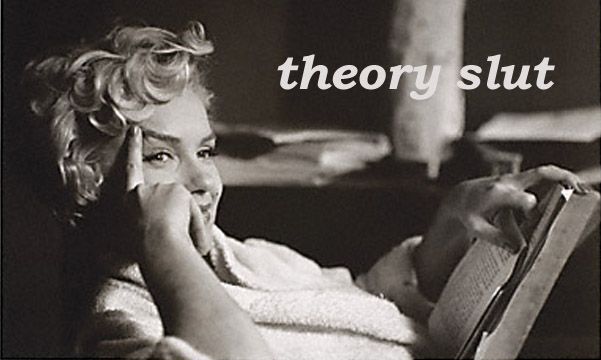I read an article this afternoon, and it had what is quite possibly the coolest title for an academic paper I've ever seen - It's Only A Penis: Rape, Feminism and Difference (Christine Helliwell, 2000, in Signs, Spring 2000, V.23 i3, p.789).
It's based on Helliwell's experience as an anthropologist in Indonesia (Kalimantan Barat / West Borneo, for the non-Bahasa-speakers), where she lived for a time in a remote Dayak community of Gerai.
"One night in September 1985," says Helliwell, "a man of the village climbed through a window into the freestanding house where a widow lived with her elderly mother, younger (unmarried) sister, and young children. The widow awoke, in darkness, to feel the man inside her mosquito net, gripping her shoulder while he climbed under the blanket that covered her and her youngest child as they slept (her older children slept on mattresses nearby). He was whispering, "be quiet, be quiet!" She responded by sitting up in bed and pushing him violently, so that he stumbled backward, became entangled with her mosquito net, and then, finally free, moved across the floor toward the window. In the meantime, the woman climbed from her bed and pursued him, shouting his name several times as she did so. His hurried exit through the window, with his clothes now in considerable disarray, was accompanied by a stream of abuse from the woman and by excited interrogations from wakened neighbors in adjoining houses.
"I awoke the following morning to raucous laughter on the longhouse verandah outside my apartment where a group of elderly women gathered regularly to thresh, winnow, and pound rice. They were recounting this tale loudly, and with enormous enjoyment, to all in the immediate vicinity. As I came out of my door, one was engaged in mimicking the man climbing out the window, sarong falling down, genitals askew. Those others working or lounging near her on the verandah -- both men and women -- shrieked with laughter."
Helliwell got indignant. How could this be a laughing matter? This woman had been assaulted - what punishment would be inflicted on the man for this instance of attempted rape? Her indignation was met with puzzlement on the part of the villagers. What was the big deal? As the "victim" put it - "It's only a penis ... how could a penis hurt you?"
As the story unfolded, it came to be understood that, in this community, sexual assualt was simply a non-event. The villagers couldn't conceive of rape in the terms that Helliwell did - which is to say, as a fate at least tantamount to death, if not worse. Helliwell understands this as symptomatic of their ideas of gender difference, or rather the lack thereof - I won't go into all the gruesome detail (you have enough information to find the article if you wish).
Anyhow, this article got me thinking about my own understandings of rape, sexual assualt, violence and consensuality - all things which I find it easy to become preoccupied with.
Historically, in the West, rape has been seen as akin to property crime - the woman is always the property either of her father, or of her husband, and so unsanctioned sexual acts (note that I'm not saying non-consensual acts here - there was quite a difference) are read as a kind of theft. The perceived/imposed vulnerability of women and the accepted roles for women (the virgin-whore dichotomy or the triphasal maiden-mother-hag progression) led to the construction of a value system which placed sexual purity in a highly privileged position. As a result, rape came to be seen as a theft of a woman's soul - which is to say, a taking away from her, as well as from her husband-owner.
Needless to say, the theft of a woman's soul is serious business, and it's in this construction of rape-as-theft that the current Western idea of rape-as-death has its roots.
Now, I'll be honest - I find it problematic to read rape-as-death. I'm concerned that it oversimplifies a complex matter, and while I've read first-person accounts of stranger-rape that make comments like "I felt like I had died and the world had gone on without me", I wonder if those accounts don't fall into the (somewhat understandable) trap of being melodramatic.
I suppose I should contextualise my comments here; while I've spoken extensively to other women who've experienced date rape and sexual assault by known perpetrators, I don't know anyone personally who has been a victim of stranger-rape - or at least no-one who's talking about it. I do understand that clinical depression and post-traumatic stress disorder are natural, even expected, responses to these kinds of events. I understand, too, that both depression and PTSD can manifest as a feeling of being stuck, or trapped.
I'm prepared to accept that violent, pulled-into-a-dark-alley, knife-to-the-throat rape is an extraordinarily traumatic experience. What I'm disinclined to accept is the premise that that trauma is akin to death, because as I see it, it's simply not the case.
This is not intended to be an anti-feminist argument - far from it. I feel that readings of rape, both in academic discourse and the mass media, have come a long, long way from the time when a Queensland judge ruled that a woman who was raped was "asking for it" by wearing jeans. But I also feel that this reading of rape as the horror-of-horrors causes as many problems as it solves.
Hands up who remembers the case last year when a girl who alleged that she was gang-raped on a school trip overseas was depicted in the media as a slut who fabricated the allegations to cover up a consensual gang-bang after curfew? Do you remember the furore over the publication of images of this girl, out with her girlfriends, wearing a short skirt in a bar? And the accompanying text suggesting that this girl, in a short skirt, was exactly the kind of girl who would fabricate these kinds of allegations? "Look at her - she's not traumatised - she's not mutilating herself or isolating herself - she's not perpetually in tears - for god's sake, she's wearing a SHORT SKIRT - CLEARLY she's made it all up, as if she REALLY had been raped, she'd be a COMPLETE WRECK."
Yeah, right. I have nothing but sympathy for that girl trying to have a normal night out. Her life was turned upside down, first by the rape, then by the persecution of her school, then by a media circus. The expectation/requirement that she be reduced to a non-functioning emotional mess by a rape is as oppressive as the idea that a sexually active teen is a slut. Why should she not be able to function in normal, age-appropriate ways in society, even soon after a rape? I do and did. I know other women who do and did.
Reading rape-as-death becomes, to me, a way of blaming the victim for the act, when the victim responds in ways other than the socially-sanctioned response of mourning what is lost. Actually, I should rephrase that. Many victims of crime, violent, sexual or otherwise, may move through a period of mourning their innocence, their safety, whatever they perceive to be lost. However, I don't believe that rape should be read as death, or mourned in that way. There is a finality to death which is not present in rape. It is possible to move beyond that act, and to define yourself as a person outside the context of that act. The public insistence that rape is a defining moment in life is as oppressive as the memory of the rape. That memory is an idea we have to live with. What we do with it is up to us. We don't have to live with the ideas of the public, or of the mass media. We shouldn't be made to.
In a quiet rage, I once told someone that "I have no interest whatsoever in being a project, a resource, a victim or, in this case, an excuse for your paranoid behaviour." What I should have added to that was that I have no interest in being told what to do, feel, or say - a stubborn sentiment of independence that dates, according to my mum, from the time I was able to 'say' anything - not from That Night in high school.
Rape may change your life, but it sure doesn't end it.
EDITED 10/4/05


